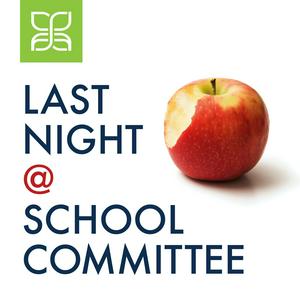Boston School Committee: 3·26·25 Meeting Recap
Last night’s meeting lasted three hours, and it centered on two main topics: Boston emerging from the State Improvement Plan (SIP) and the vote on the FY26 budget. The meeting began with Chair Robinson recapping major news from the Department of Elementary and Secondary Education (DESE) board meeting on Tuesday. In short, DESE announced that the SIP, which expires in June, would not be renewed by the state. While state officials praised the district’s improvements and work, it was clear that the results of the SIP were a mixed bag. Nevertheless, the state is now moving the district out of the SIP, and the Superintendent spent a large portion of her report highlighting the vast improvements including bus arrival times, increased test scores, and new career pathways for BPS students. However, School Committee and DESE board members had words of caution given the urgency of necessary improvements in BPS. The oversight will officially end on June 30th, but the School Committee did note that they will look to continue internal oversight. Clearly, though, there is much work to be done in the district given the results shown below and in a recent report by the Boston Policy Institute.
After a short public comment period that hit on major pain points from the community, the meeting moved on to the vote on the FY26 budget. While there was not much suspense as to whether the budget would pass or not, School Committee members did raise certain concerns about its scope and priorities. More specifically, members questioned, once again, how the budget fits into the district’s long-term plan, the presence of school accountability measures, and the needs in the district that still need to be addressed. Though one member voted no, the budget ultimately passed, with six yea votes.
The School Committee meeting ended with a presentation on an amendment to the code of conduct. In short, due to a change in state law, the district had to adjust their use of discipline, and they are moving more towards a system of “progressive discipline.” There will be a vote at the next School Committee meeting on the amendment.
Finally, as mentioned during this week’s podcast, we will be tracking the questions and requests made by School Committee members during the meetings. As we have seen, oftentimes, inquiries about the state of affairs, data, and other relevant matters are asked, but questions are left unanswered. As part of each blog post, we will be monitoring these questions and whether they have been answered. Here are some from last night:
Can we create a task for achievement and opportunity gaps? - Dr. Stephen Alkins
In the district, how many psychologists are there per student? - Chair Jeri Robinson
Where are we now [in terms of priorities in the budget]? - Chair Jeri Robinson?
The School Committee will next meet at 6pm on Wednesday, April 16th. We are looking forward to hearing from the Superintendent about the district’s new contract with teachers.
Learn more about your ad choices. Visit podcastchoices.com/adchoices
